Welcome to the Amira-Avizo Software Use Case Gallery
Below you will find a collection of use cases of our 3D data visualization and analysis software. These use cases include scientific publications, articles, papers, posters, presentations or even videos that show how Amira-Avizo Software is used to address various scientific and industrial research topics.
Use the Domain selector to filter by main application area, and use the Search box to enter keywords related to specific topics you are interested in.
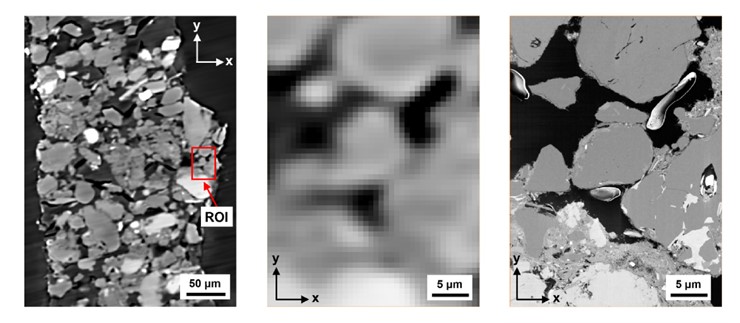
3D loess microstructure of loess, including skeleton particles as well as inter-particle bonding structures, was characterized through a correlative approach using μXCT and FIB-SEM
Loess, a Quaternary wind-blown deposit, is a problem soil that gives rise to frequent geohazards such as landslides and water-induced subsidence. The behavior of loess is controlled by its microstructure, consisting of silt sized
skeleton particles and complex bonding structures formed by clay-sized p... Read more
B. Yu, T.A. Dijkstra, W. Fan, I.J. Smalley, Y.N. Wei, L.S. Deng
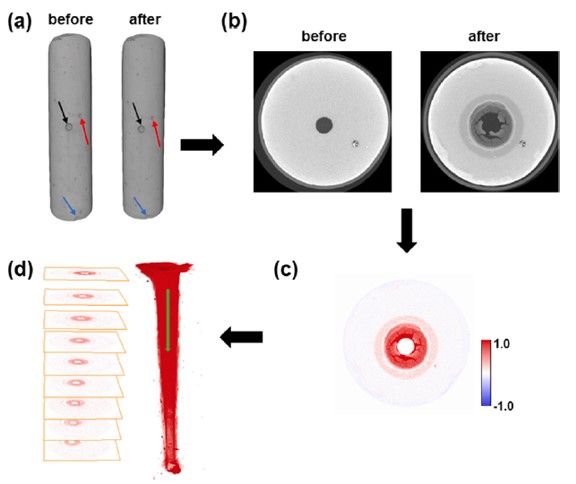
Comparative experimental observations of cement with a flow channel subject to CO2-saturated brine flow by micro-CT scanning and CT image post processing.
Understanding CO2-induced micro-structural changes at the imperfections in wellbore cement is vital for assessing the risk of CO2 leakage through wellbore cement under geologic CO2 storage (GCS) conditions. To investigate the evolution of a flow channel width in cement under GCS conditions and the influence of effective stress and fl... Read more
Manguang Gan, Liwei Zhang, Yan Wang, Kaiyuan Mei, Xiaojuan Fu, Xiaowei Cheng, Mingxing Bai, Hejuan Liu, Xiaochun Li
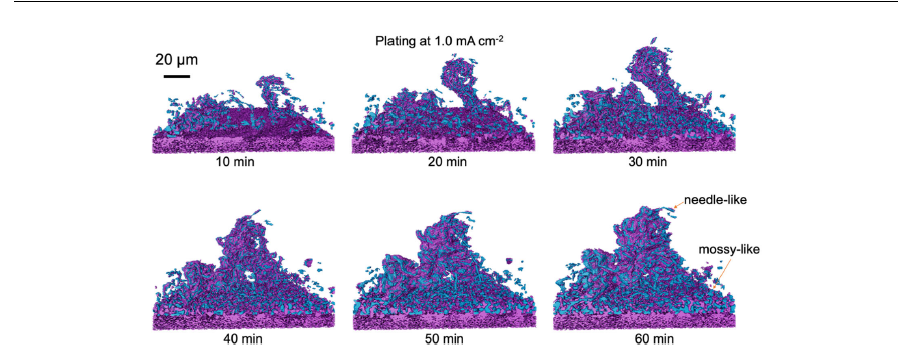
Li metal is considered as the most important negative electrode active material for Li-based batteries because of its high theoretical specific capacity of 3860mAh g-1, which is an order of magnitude higher than the currently used graphite, and by being the most electropositive metal. When coupled with high-capacity cathodes, either Li insertion materials or conversion chemistries, or applied in a solid-sate configuration, a leap in energy density can be obtained. The main challenge in the di... Read more
Matthew Sadd, Shizhao Xiong, Jacob R. Bowen, Federica Marone, Aleksandar Matic
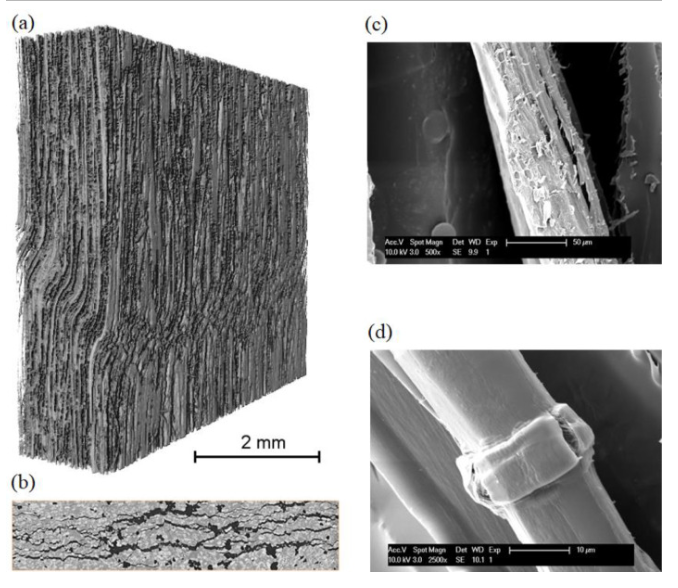
In this study, the researchers investigated the compressive failure mechanisms in flax fiber composites, a promising eco-friendly alternative to synthetic composite materials, through both numerical simulations and experimental analysis. They examined the reasons behind the low compressive strength in comparison to tensile strength, focusing on the compressive-to-tensile strength ratio. A novel thermodynamically consistent continuum damage micromechanics model was introduced to capture the ev... Read more
Vedad Tojaga, Alexandros Prapavesis, Jonas Faleskog, T. Christian Gasser, Aart W. van Vuure, Sören Östlund
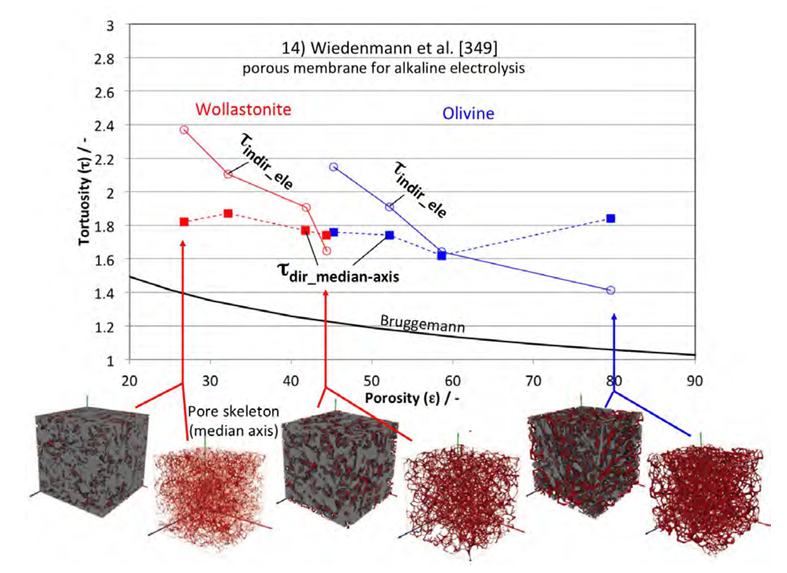
This study provides a comprehensive review of tortuosity and its impact on the transport properties of porous media. It discusses the classical theories and equations related to tortuosity for flow, conduction, and diffusion. The study also highlights the evolution of these theories and their connection to methodologies such as tomography and 3D image analysis. In order to clarify the topic, a new classification scheme and nomenclature for different types of tortuosity are proposed. The study... Read more
Holzer, L. *1, Marmet, P. 1, Fingerle, M. 2, Wiegmann, A. 2, Neumann, M. 3, Schmidt, V. 3

The research focuses on the fiber behavior following injection molding on a spiral-flow mold, particularly its fiber orientation behavior. The behavior of the glass fiber will be examined by altering key experiment settings, the screw speed and the back pressure, and employing different melt paths. The results show that the application of high back pressure and high screw speed decreased the fiber length but successfully increased the fiber orientation average to the flow direction. The desig... Read more
Ahmad Hafizh Ridho, Feng-Jung Cheng, Sheng-Jye Hwang
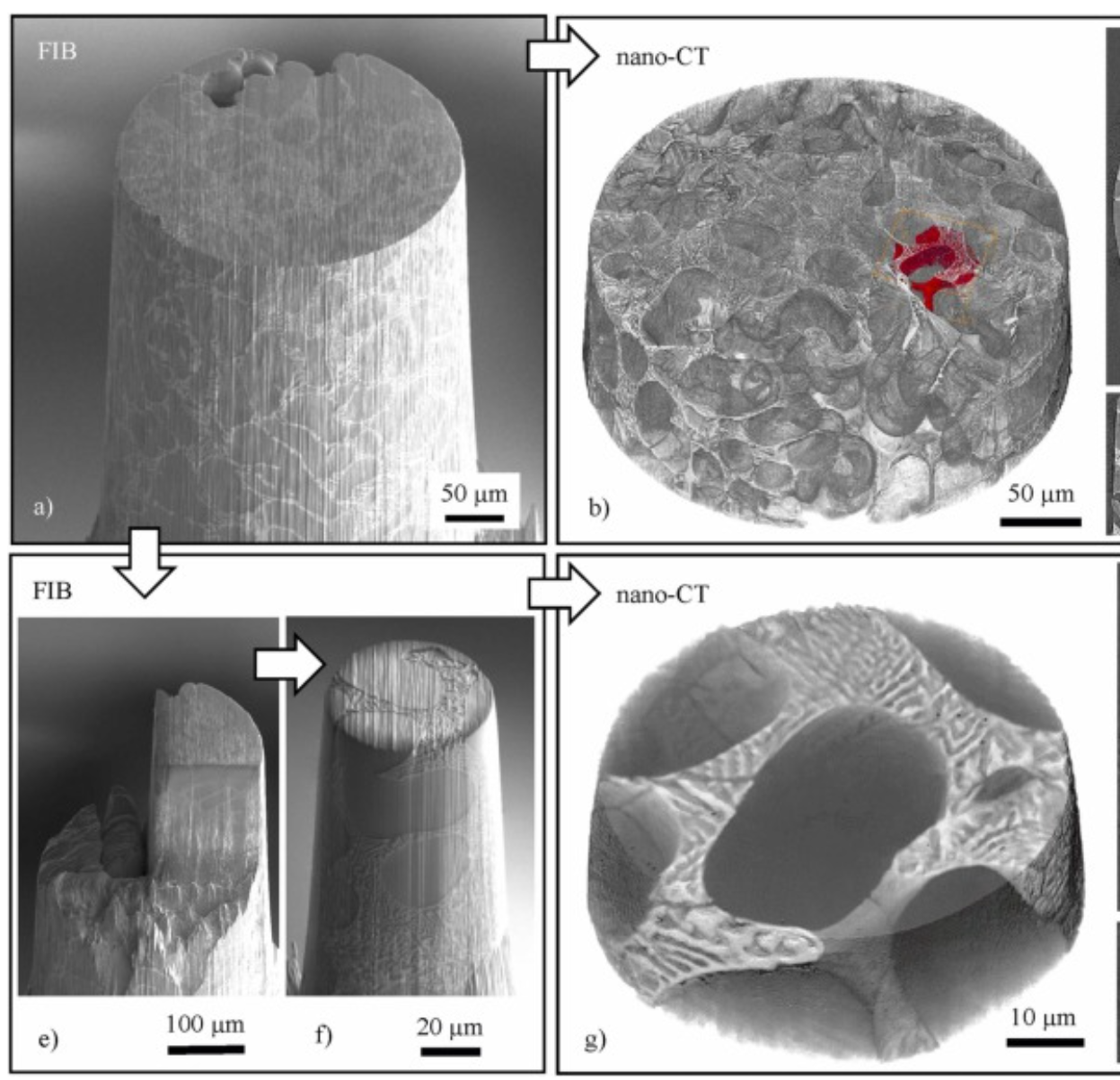
Three-dimensional imaging of microstructural evolution in SEM-based nano-CT
Scanning electron microscopy (SEM) is a powerful and versatile technique for materials characterization and present in many laboratories. The integration of an X-ray target holder and detector allows expanding the modalities of SEM by X-ray imaging. These little hardware adaptations enable radiography ... Read more
Jonas Fell, Christoph Pauly, Michael Maisl, Simon Zabler, Frank Mücklich, Hans-Georg Herrmann
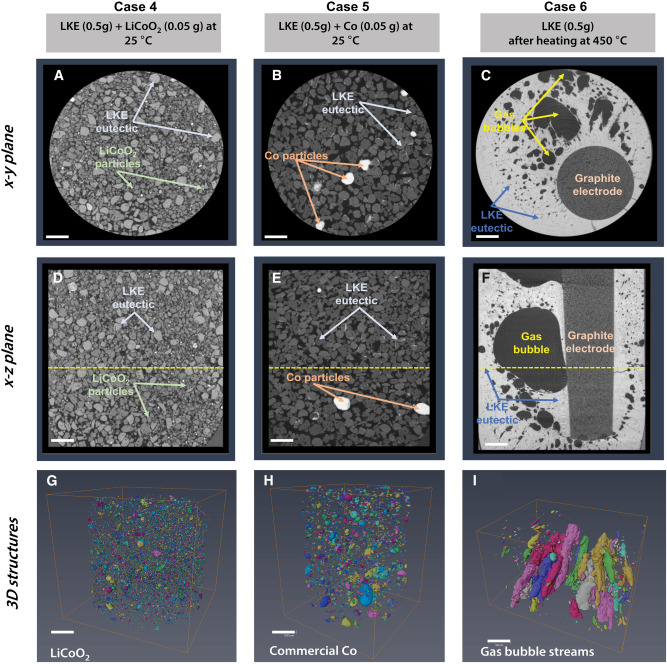
Recycling spent lithium-ion batteries (LiBs) guarantees the conservation of important metal resources by reducing demands on raw supply and offsetting the energy and environmental costs associated with its manufacture. Employing a molten salt as a solvent for extraction affords a much greener and simpler route to metal recovery by electrochemical means. The current mechanistic understanding of the electrochemical recovery of metals in molten salts needs to be improved for the process to be op... Read more
Mateen Mirza, Wenjia Du, Lara Rasha, Steven Wilcock, Arfon H. Jones, Paul R. Shearing, Dan J.L. Brett
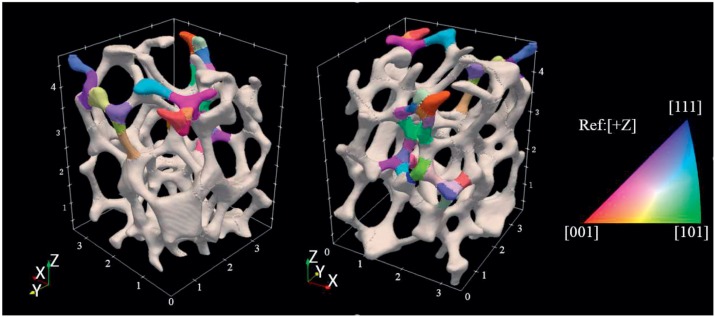
The complex mechanical response of open-cell foams depends strongly on the hierarchy of length scales inherent in them, from engineering-part scale to the ligament scale through the grain scale down to the crystal-lattice scale. A first step toward understanding and predicting the coordinated mechanical response across le... Read more
Jayden C. Plumb, Jonathan F. Lind, Joseph C. Tucker, Ron Kelley, Ashley D. Spear
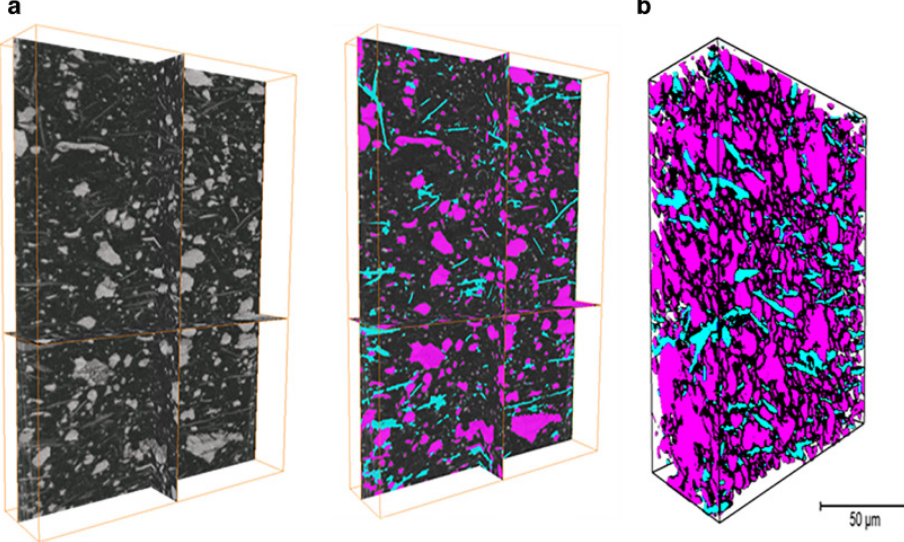
Multi-modal plasma focused ion beam serial section tomography of an organic paint coating
Pigment distributions have a critical role in the corrosion protection properties of organic paint coatings, but they are difficult to image in 3D over statistically significant volumes and at sufficiently high spatial resolutions required for detailed analysis. Here we report, for the first time, large volume analytical serial sectioning tomography of an organic composite coating using a xenon Plasma Focused Ion Beam (PFIB) combined with secondary electron imaging, energy dispersive X-ray (E... Read more
Zhong Xiangli, M. Grace Burke, Philip J. Withers, Zhang Xun, Zhou Xiaorong, Timothy L. Burnett, Liu Yanwen, Stuart B. Lyon, Simon R.Gibbon
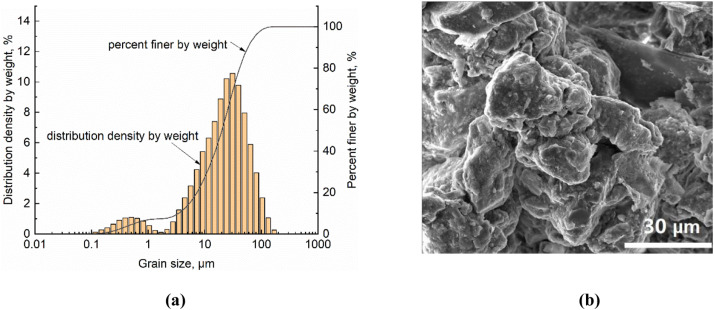
3D characterisation of the particle kinematics during loess collapse is performed based on X-ray micro-computed tomography.
Particle displacements and rotations associated with the collapse are determined.
The volumetric strain is shown to be significantly heterogeneous at single-particle scale.
The evolution of particle-to-particle contacts is found to be much more complex than previously stated.
An apparatus is specially designed to perf... Read more
B. Yu, W. Fan, J.H. Fan, T.A. Dijkstra, Y.N. Wei, T.T. Wei
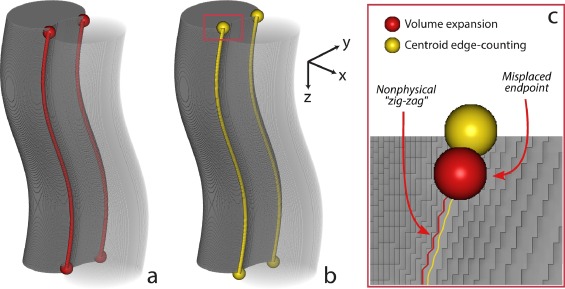
Improving microstructural quantification in FIB/SEM nanotomography
Advanced nanotomographic analysis is still far from routine, and a number of challenges remain in data acquisition and post-processing. In this work, we present a number of techniques to improve the quality of the acquired data, together with easy-to-implement methods to obtain “advanced” microstructural quantifications. The techniques are applied to a solid oxide fuel cell cathode of interest to the electrochemistry community, but the methodologies are easily adaptable to a wide range of... Read more
Joshua A.Taillon, Christopher Pellegrinelli, Yi-Lin Huang, Eric D.Wachsman, Lourdes G. Salamanca-Riba
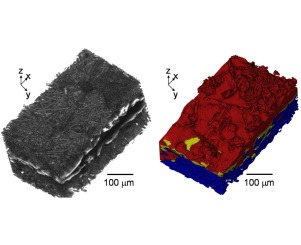
Investigation of Hot Pressed Polymer Electrolyte Fuel Cell Assemblies via X-ray Computed Tomography
The hot pressing process for fabricating membrane electrode assemblies (MEAs) has been widely adopted, yet little is known of its effects on the microstructural properties of the different components of the MEA. In particular, the interaction of the electrolyte, electrode and gas diffusion layer (GDL) due to lamination is difficult to probe as conventional imaging techniques cannot access the internal structure of the MEA. Here, a novel approach is used, which combines characterisation of hot... Read more
Q. Meyer, N. Mansor, F. Iacoviello, P.L. Cullen, R. Jervis, D. Finegan, C. Tan, J. Bailey, P. R. Shearing, D. J. L. Brett
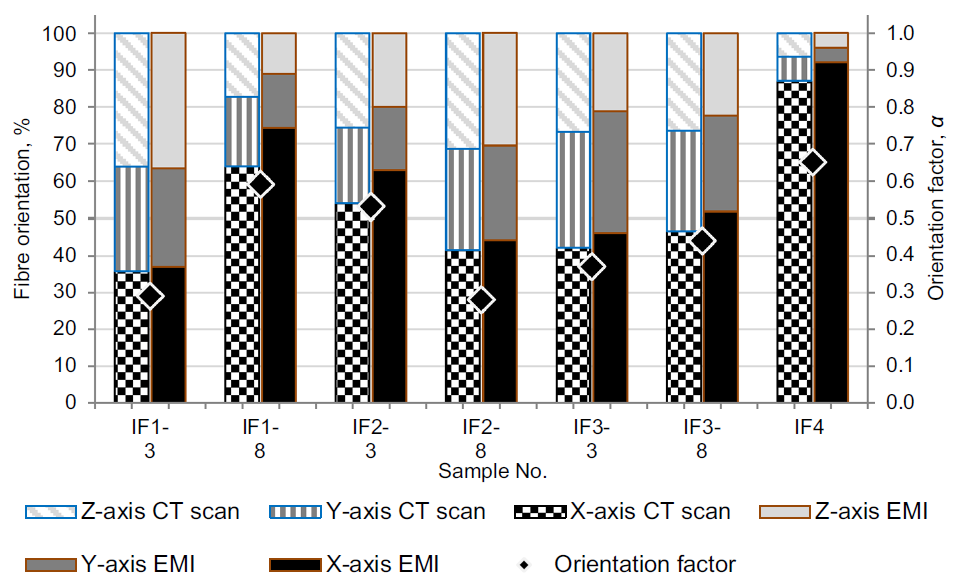
The interest in potential applications produced with self-compacting fibre reinforced concrete continues to grow, but in practice, problems associated with an uneven distribution and orientation of fibres in the concrete structure occur. It is not clear what exactly influences uneven distribution of fibres in selfcompacting concrete (SCC) mixtures, especially during the casting and how different factors influence fibre orientation. The objective of this work was to investigate how rheological... Read more
Elena Jasiuniene, Vaidotas Cicenas, Paulius Grigaliunas, Zymantas Rudzionis, Arunas Aleksandras Navickas
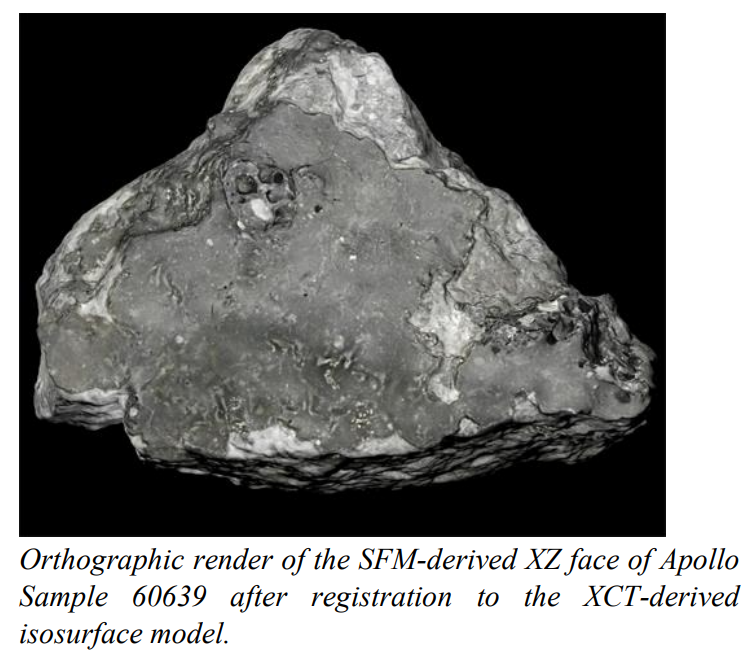
Our team is developing a modern, cross-disciplinary approach to documentation and preservation of astromaterials, specifically lunar and meteorite samples stored at the Johnson Space Center (JSC) Lunar Sample Laboratory Facility.
Apollo Lunar Sample 60639, collected as part of rake sample 60610 during the 3rd Extra-Vehicular Activity of the Apollo 16 mission in 1972, served as the first NASA preserved lunar sample to be examined by our team in the development of a novel approach to int... Read more
K.R. Beaulieu , E.H. Blumenfeld , D.A. Liddle , E.R. Oshel , C.A. Evans , R.A. Zeigler , K. Righter , R.D. Hanna , R.A. Ketcham
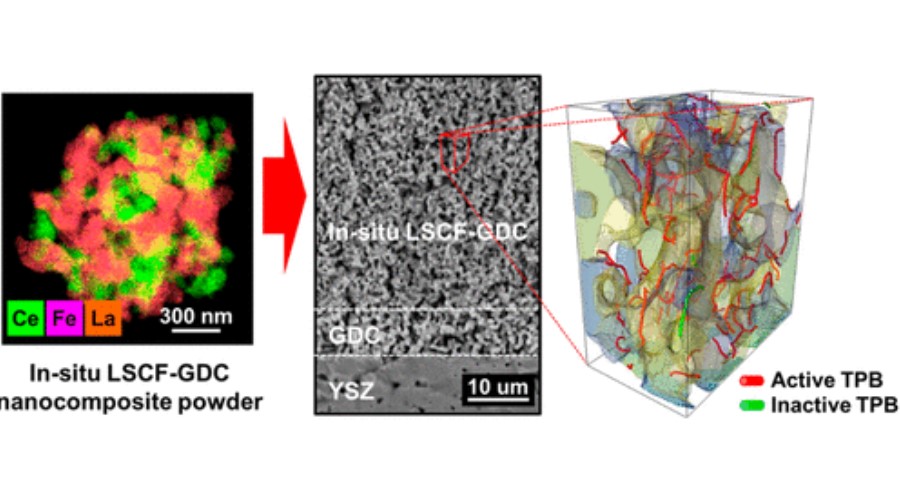
Composite cathodes comprising nanoscale
powders are expected to impart with high specific surface
area and triple phase boundary (TPB) density, which will lead
to better performance.
However, uniformly mixing nanosized heterophase powders remains a challenge due to their high surface energy and thus ease with which they agglomerate into their individual phases during the mixing and sintering
processes. In this study, we successfully synthesized La0.6Sr0.4Co0.2Fe... Read more
Dong Woo Joh, Areum Cha, Jeong Hwa Park, Kyeong Joon Kim, Kyung Taek Bae, Doyeub Kim, Young Ki Choi, Hyegsoon An, Ji Su Shin, Kyung Joong Yoon, and Kang Taek Lee
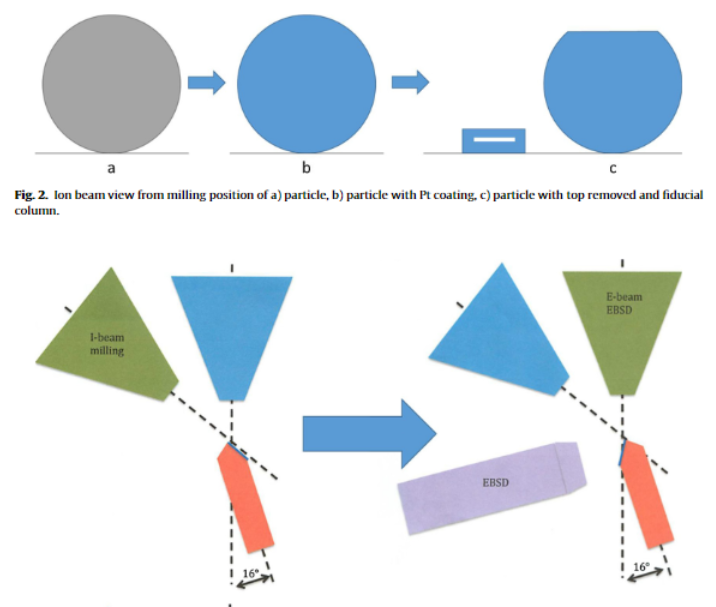
Automated 3D EBSD for metallic powders
Metallic powders are commonly used in additive manufacturing processes. While their post-process consolidated properties are widely studied, there is little research on the properties of the powders prior to consolidation. Understanding the powder characteristics before use in additive manufacturing processes could lead to fine-tuning properties of additively manufactured materials. The three-dimensional grain structure of metals can be useful in predicting their properties and ... Read more
Caitlin Walde, Roger Ristau, Danielle Cote
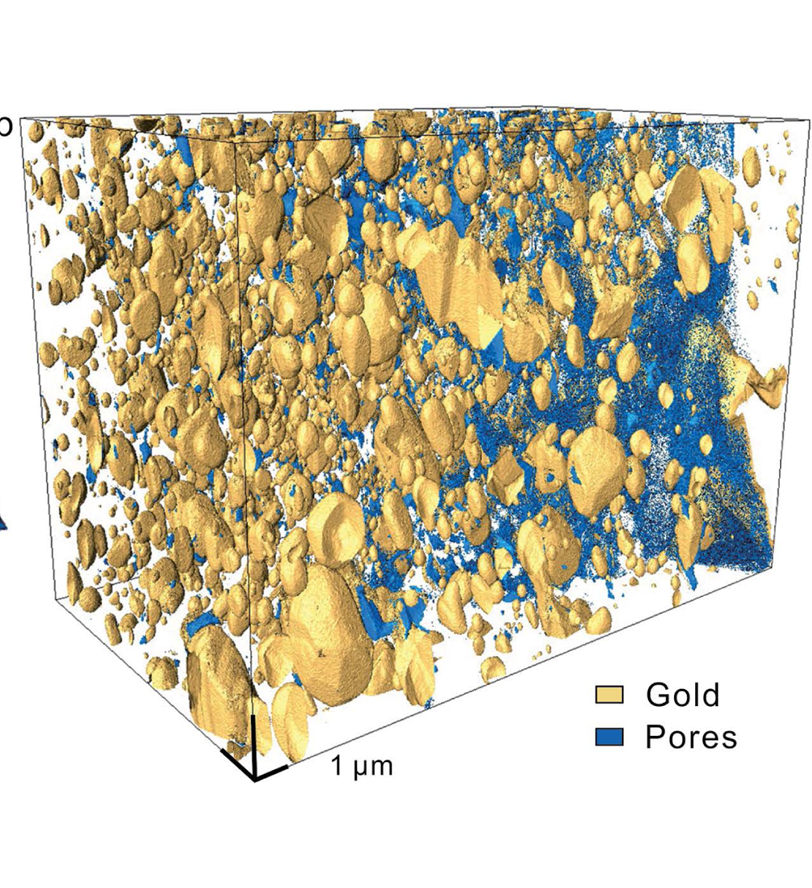
Recent studies have identified gold nanoparticles in ores in a range of deposit types, but little is known about their formation processes. In this contribution, gold-bearing magnetite from the well-documented, world-class Beiya Au deposit, China, was investigated in terms of microstructure and crystallography at the nanoscale. We present the first three-dimensional (3D) focused ion beam/scanning electron microscopy (FIB/SEM) tomography of the distribution of gold nanoparticles in nanopores i... Read more
Haoyang Zhou, Richard Wirth, Sarah A. Gleeson, Anja Schreiber, Sathish Mayanna
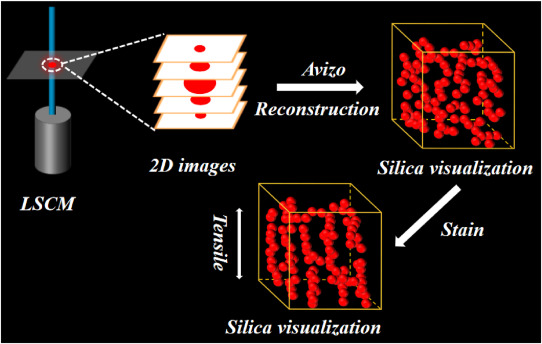
For organic-inorganic composite materials, the spatial dispersion of inorganic fillers in the organic matrix is of great significance for designing and manufacturing high-performance composite materials. To improve the understanding of the micro-physical mechanism of the filler-reinforced polymer matrix, we studied the relationship between filler network structure and macro-mechanical properties of silicone rubber by using fluorescent labeling technology and three-dimensional (3D) visualizati... Read more
Shangjun Zeng, Ming Kang, Kexu Chen, Rong Sun, Ai Lu, Guanjun Changa
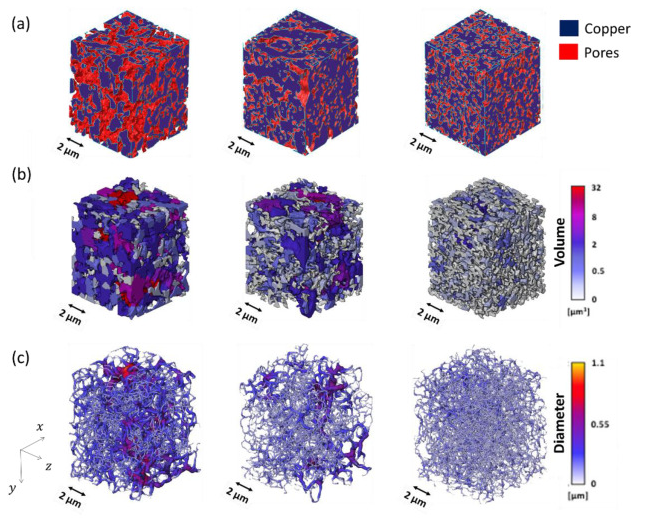
Porous materials have attracted great attention for various applications, e.g., catalysis, novel materials, energy related topics, acoustics, microelectronics, actuator, bioengineering and biomimetic. Recently, porous materials have gained interest as interconnect materials for power semiconductor device.
The trend in the semiconductor industry goes towards eco-friendliness and higher energy efficiency. Semiconductor compound materials, such as silicon carbide (SiC) or gallium nitride... Read more
A.Wijaya, B.Eichinger, F.F.Chamasemani, B.Sartory, R.Hammer, V.Maier-Kiener, D.Kiener, M.Mischitz, R.Brunner
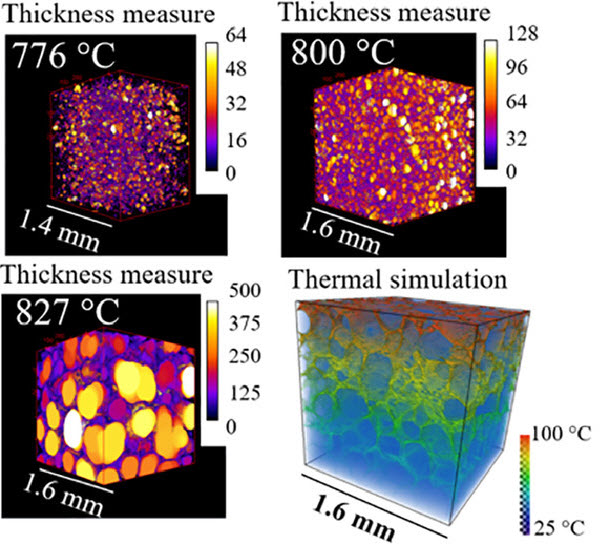
High-speed synchrotron X-ray imaging of glass foaming and thermal conductivity simulation
Glass foams are attractive thermal insulation materials, thus, the thermal conductivity (λ) is crucial for their insulating performance. Understanding the foaming process is critical for process optimization. Here, we applied high-speed synchrotron X-ray tomography to investigate the change in pore structure during the foaming process, quantifying the foam structures and porosity dynamically. The results can provide guidance for the manufacturing of glass foams. The 3D pore structures were a... Read more
Martin B. Østergaard, Manlin Zhang, Xiaomei Shen, Rasmus R. Petersen, Jakob König, Peter D. Lee, Yuanzheng Yue, Biao Cai